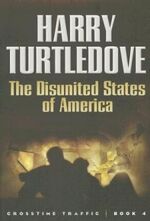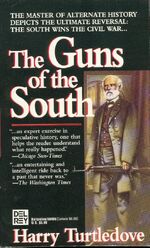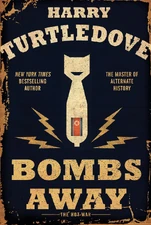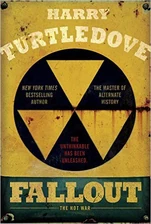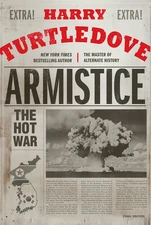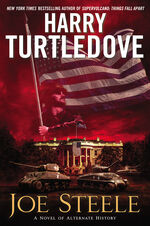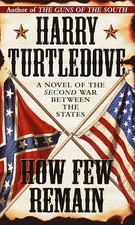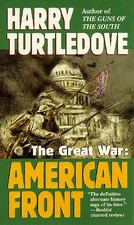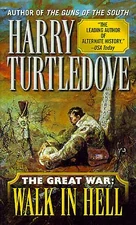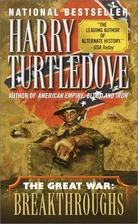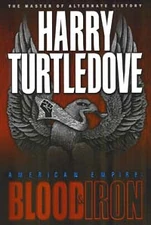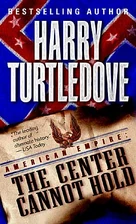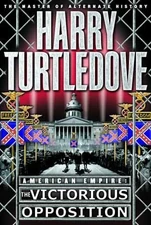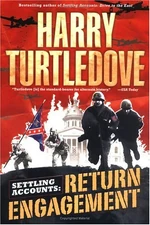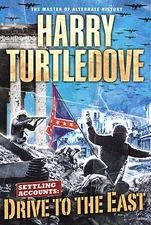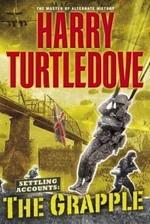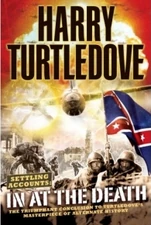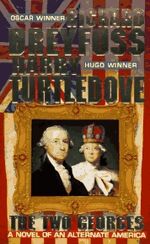
Richmond is the capital of the Commonwealth of Virginia, in the United States. Founded in 1737, it became the capital of the Colony and Dominion of Virginia in 1780. During the Revolutionary War period, several notable events occurred in the city, including Patrick Henry's "Give me liberty or give me death" speech in 1775 at St. John's Church, and the Virginia Statute for Religious Freedom in 1779, the latter of which was written by Thomas Jefferson in the city. During the American Civil War, Richmond served as the capital of the Confederate States.
Richmond in The Disunited States of America
Richmond was the capital of the nation-state of Virginia in a high-tech alternate. Crosstime Traffic deemed Richmond sufficiently advanced to be developing cross-time travel.
Richmond was one of the first cities hit by the mutated measles virus which Ohio released into Virginia during the War of 2097.
Richmond in The Guns of the South
Richmond was the capital of the Confederacy.
Richmond in The Hot War
While flying back to Washington, DC from a fund-raiser in Buffalo, New York, President Harry Truman was informed by his pilot Major Pesky that there was a "flap" about the airspace over Washington and that they were being asked to divert to Richmond. Truman replied that he didn't find Richmond even slightly diverting and wanted to know more. Before more information was forthcoming, a harsh glare blazed forth. Washington had been hit with a Soviet atomic bomb.
Truman asked Major Pesky to head for Baltimore since it was closer to Washington but Major Pesky recommended not to since it was a major city and so a possible target. Instead, he suggested it would be safer for them to circle as long as they could. Truman agreed but as they neared Washington, a second atomic explosion occurred destroying the Pentagon. Truman ordered the plane to remain airborne until fuel ran low and was forced to land in Richmond to refuel. While on the ground, Truman tried to gain more information via the telephone but too many important exchanges were down. At dawn, Truman boarded his airplane and took an aerial survey of the damage.
In all the mayhem, Truman found the strength of mind to reflect how the short distance between Washington and Richmond, which worked to his advantage, had been a source of frustration for Abraham Lincoln and Jefferson Davis during the American Civil War, 90 years earlier.[1]
Richmond in Joe Steele
The Richmond office of the GBI was attacked in 1953, when a bomb blew up inside, killing 26 people. GBI National Director J. Edgar Hoover, presumably the intended target, had left the building only half an hour earlier. The man arrested in connection with the bombing was a first cousin of a U.S. Representative who'd voted against the removal of President Garner which enabled Hoover's rise to power.[2]
Richmond in "The Last Reunion"
Richmond was the site of a reunion of southern Civil War veterans in 1932.
Richmond in Southern Victory
Richmond was the capital of the Confederate States of America (1862-1944). Every President of that nation lived in the Gray House in Richmond and administered the CS from it.
During the War of Secession, the Union launched three major land campaigns and one naval campaign to take the city, but all failed. It would be many decades later before Richmond was again threatened militarily.
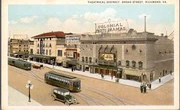
Richmond, just after the Second Mexican War
During the Great War, Richmond was at the end of the effective range of US aeroplanes for most of the war, and thus was only occasionally subjected to bombing raids (unlike Washington, DC). It was in the last year of the war, that Richmond suffered extensive damage from massive U.S. bombing raids. During that war, Richmond was also an important port of call for Entente navies in the Atlantic.
When the war ended, the US forced the CS to agree to a number of territorial concessions. One of these expanded the state of West Virginia to put Richmond within shelling range of the US. After the war Richmond became a destination for demobilized Confederate veterans. The city's population swelled, and the infrastructure was unable to accommodate the new residents. Civil unrest ensued, with active military personnel periodically forced to fire on disgruntled veterans. It was during this time that the Freedom Party was first founded in the city. (Jake Featherston was a native of Richmond.)
Like most Confederate cities, Richmond was economically depressed from the end of the Great War through the early 1930s. It began to recover under the Freedom Party's policies, and played host to the 1936 Olympics, an extravagant event aimed at showing the world that the Confederacy had recovered from its Great War defeat and postwar tribulations.
In 1940 Al Smith became the first President of the United States to visit Richmond since before the War of Secession. There he signed the infamous Richmond Agreement with Featherston, agreeing to plebiscites in Kentucky, Houston, and Sequoyah--an agreement whose terms, of course, Featherston never intended to honor.
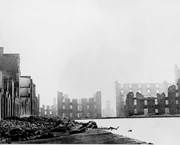
Richmond, 1944, after the city fell to Daniel MacArthur
When war broke out between the US and CS in 1941, a US army under Daniel MacArthur advanced on Richmond but was halted by the Army of Northern Virginia at the Battles of Fredericksburg. A planned campaign by MacArthur that would copy George McClellan's 1862 Peninsula Campaign (though presumably MacArthur would have led the campaign more aggressively than McClellan did) was abandoned when MacArthur's intention to proceed with it against the General Staff's orders was betrayed by Abner Dowling.
However, the combination of Richmond being closer to US territory than it was in the Great War and improvements in airplane technology made Richmond a much easier bombing target. It is visited by US bombers nightly, and as of late 1942 few denizens of Richmond were able to live and work indoors above ground. By late 1943, Richmond had become, along with Paris, one of the two most heavily bombed cities in the world.
As U.S. General Irving Morrell drove deep into the Confederacy, Richmond became vulnerable. Daniel MacArthur was again ordered to attack, this time overwhelming the city in 1944. Charles W. La Follette became the first US President to visit Richmond as a conqueror.
Richmond in The Two Georges
In the Summer of 1995, two members of the Richmond office of the Royal American Mounted Police were caught passing information to the Sons of Liberty. The arrangement had been going on for some time.[3]
See also
- Nonesuch, Parthenia: A city in The War Between the Provinces series that is based on Richmond.
References
- ↑ Fallout, pgs. 388-392, HC.
- ↑ Joe Steele, p. 437, HC.
- ↑ The Two Georges, p. 308, HC.
